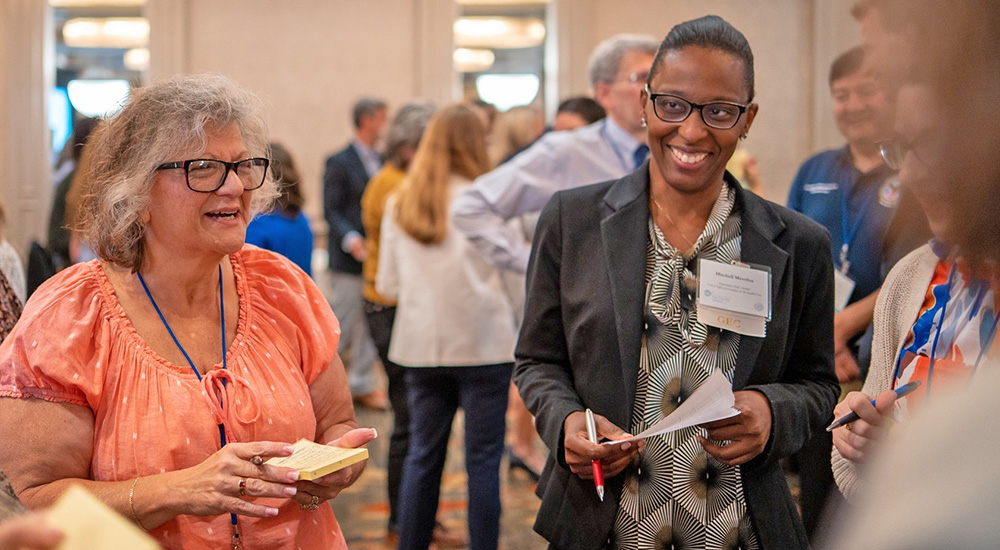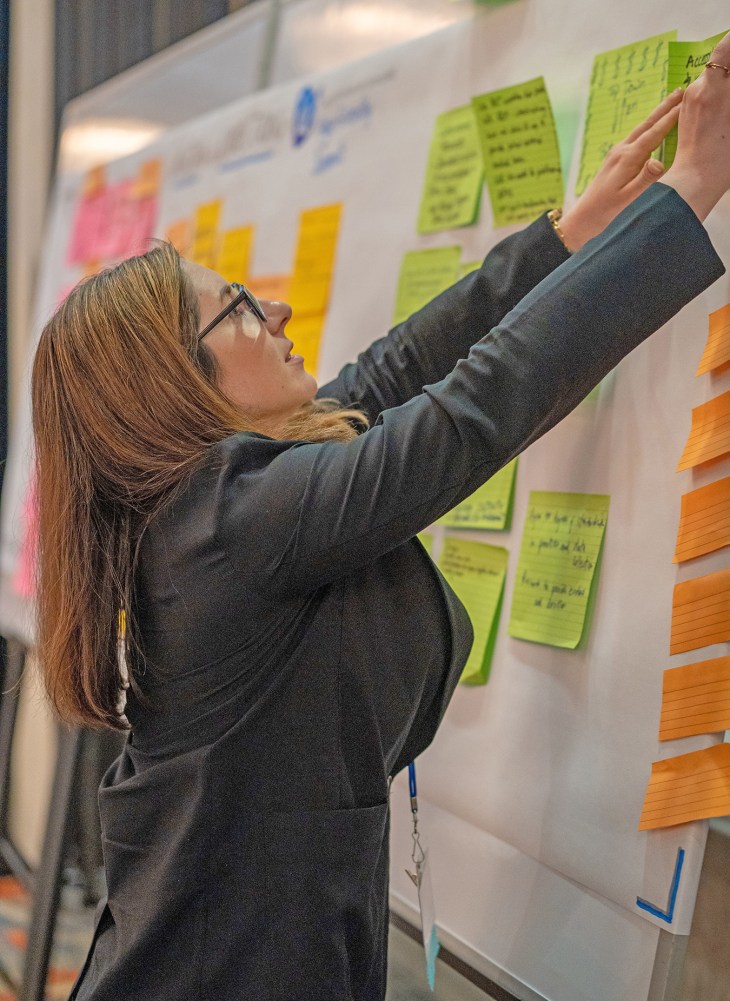With nearly half of Veterans over the age of 65, VA’s Office of Geriatrics and Extended Care (GEC) is leading the efforts to transform VHA into the largest age-friendly health system in the U.S. This summer, frontline staff from every Veterans Integrated Service Network gathered in Providence, Rhode Island, to accelerate the wide-spread adoption of the “Age-Friendly Health Systems” (AFHS) movement.
The two-day Age-Friendly Summit, supported by Diffusion of Excellence, convened leaders and champions to document lessons learned from early adopters and develop a five-year plan to ensure that all care for older Veterans is age-friendly.
Age-Friendly Health Systems
Age-Friendly Health Systems follows an essential set of evidenced-based practices called the 4Ms: What Matters, Medication, Mentation (Mind) and Mobility. At the core of these practices is value and respect for Veterans’ wishes and priorities with care plans based on what matters most to Veterans and their families.
As VA Under Secretary for Health Dr. Shereef Elnahal said during his opening remarks, “Age-Friendly Health Systems is a high-reliability approach to continuously improve care and achieve zero harm. When implemented together, the 4Ms serve as a whole health approach where care is focused and aligned with each Veteran’s unique mission, aspiration or purpose.”
Why age-friendly care is needed now more than ever
Presenters and participants identified priorities and creative approaches to spread the 4Ms across the continuum of care in VHA. Topics included 4Ms education, evaluation and leadership engagement in this movement.
In her address, Dr. Carolyn Clancy reported that by 2060 the U.S. expects the number of older adults to skyrocket to 94.7 million people, challenging health care systems to meet this demand. Clancy is assistant under secretary for Health for Discovery, Education and Affiliate Networks.
VA “has been paving the way for age-friendly care for decades” and is uniquely positioned to lead the way for all health care providers in the U.S.,” Clancy emphasized. “For nearly half a century, VA has been a leader in care for older adults, having established the geriatric research, education and health centers in 1975.”
Maintaining the momentum
Attendees left the summit to return to their home facilities with a plan to engage their colleagues and facility leadership. Kimberly Church, AFHS national lead, said GEC is already preparing to recruit new facilities to the second Age-Friendly Action Community set to begin in January 2024.
To learn more about AFHS, visit the Diffusion Marketplace or www.va.gov/geriatrics.
Want to learn more about innovation at VA? Visit our website, subscribe to our weekly newsletter, and follow us on Twitter and Facebook.
Topics in this story
Link Disclaimer
This page includes links to other websites outside our control and jurisdiction. VA is not responsible for the privacy practices or the content of non-VA Web sites. We encourage you to review the privacy policy or terms and conditions of those sites to fully understand what information is collected and how it is used.
More Stories
Veteran Byron Potier weighed almost 300 pounds and was tired and lethargic. He was the perfect candidate for gastric sleeve surgery.
How much do you know about VA care, benefits and services? Don’t miss out on what you've earned—check out the "2025 VA Federal Benefits Guide for Veterans, Dependents, Survivors, and Caregivers" handbook to learn more.
Feeling stressed? Your breath can help you relax and focus. Take 3 minutes to reset and prioritize your well being for this week's #LiveWholeHealth practice.








I have needed two shoulder operations for the last three to four years and the Durham VA has refused me. I am seventy five years old now. My medical provider won’t even schedule me appointment with the orthopedic department. Durham VA doesn’t care for the older veterans.
Could have fooled me, when I came back from Vietnam in 1970 after going through Hell in combat in Vietnam and Cambodia as a member of the 25th Infantry, I needed help, and the VA could care less. Now all of a sudden they are giving help to non combat vets, I have a lot of Veteran friends that also needed help but are deceased. So where were you when we really needed help!!!!!!!!!
As a VA patient for 40 yrs plus I’ve seen many changes. My biggest concern as a Rural Health Veterans is this. I see a rapid decline in services provided at my CBOC. I truly feel they are going to be phased out.
VA facilities used to be a place for Healthcare and comraderie, maybe a coffee.
Strange that it hasn’t filtered down to the Maine older Vets yet. I have so many aches and pains that are unexplainable and yet the pains remain while the gain just disappears.
vet over 65 need dental care and the va does not provide that service. Why. Even though if youre witth disability of 60%.